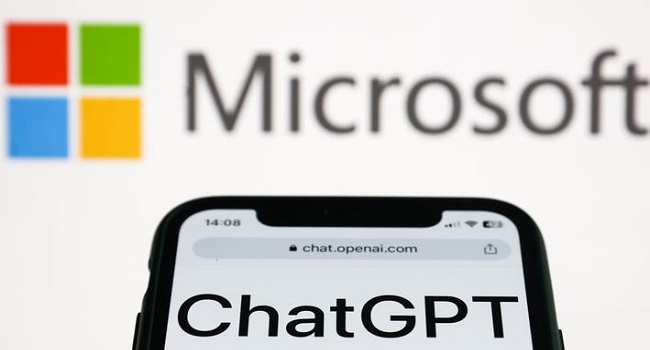Microsoft is incorporating artificial intelligence (AI) chatbot technology into its search engine Bing and its browser Edge.
The company made the announcement at a press event on Tuesday at its Redmond headquarters in Washington.
Bing and Edge will be powered by an upgraded version of the AI technology that’s the hallmark of ChatGPT, the conversational service developed by OpenAI that can provide responses to a multitude of prompts.
Yusuf Mehdi, a Microsoft executive who leads its search division, said a public preview of the new Bing launched Tuesday for users who sign up for it, but the technology will scale to millions of users in coming weeks.
Users will be able to input queries into Bing like how they would to ChatGPT, and receive coherent responses that aim to fulfill the query.
Everyone can try a limited number of queries, Mehdi said.
The new Bing also includes annotations that link to sources the responses are drawn from. But there is a caution that appears at the bottom of Bing’s new homepage, which says that because Bing is powered by AI, “surprises and mistakes are possible.” Users are advised to “Make sure to check the facts.”
The latest shift by Microsoft will make its search engine and browser more conversational and more capable of providing answers to specific questions instead of merely providing links to other websites ranked by relevance.
The changes could have wide-ranging implications for advertisements on these platforms.
Microsoft Corp. CEO Satya Nadella said Tuesday that new AI advances are “going to reshape every software category we know,” including search, much like earlier innovations in personal computers and cloud computing.
He said it is important to develop AI “with human preferences and societal norms and you’re not going to do that in a lab,” adding, “You have to do that out in the world.”
Microsoft’s Bing is second behind Google’s search engine, holding 9 percent of search traffic worldwide compared to Google’s 83 percent as of December 2022, according to Statista.
Microsoft has been partnering with ChatGPT-maker OpenAI since 2019, with multiyear, multibillion-dollar investments in the company. The investments so far have led to the development of a powerful supercomputer specifically built to train the AI models that power ChatGPT and other AI tools, such as the image-generator DALL-E.
Microsoft also recently announced a new multibillion-dollar investment into OpenAI as it looks to incorporate the technology behind these AI tools into its Office products like email and spreadsheets.
ChatGPT’s masterful ability to generate English responses in various styles comes from having been fed a large number of online writings, from books to Wikipedia entries, to news websites, blogs, and instruction manuals.
Google on Monday announced a rival to ChatGPT called “Bard.” Google CEO Sundar Pichai said the conversational service will be available to some “trusted testers” before it gets released more widely later this year.
Meanwhile, Chinese media reported that Chinese tech giant Baidu announced it will launch a similar AI-powered search engine later this year. Other companies, Amazon, and Facebook parent Meta are also working on similar technology.




